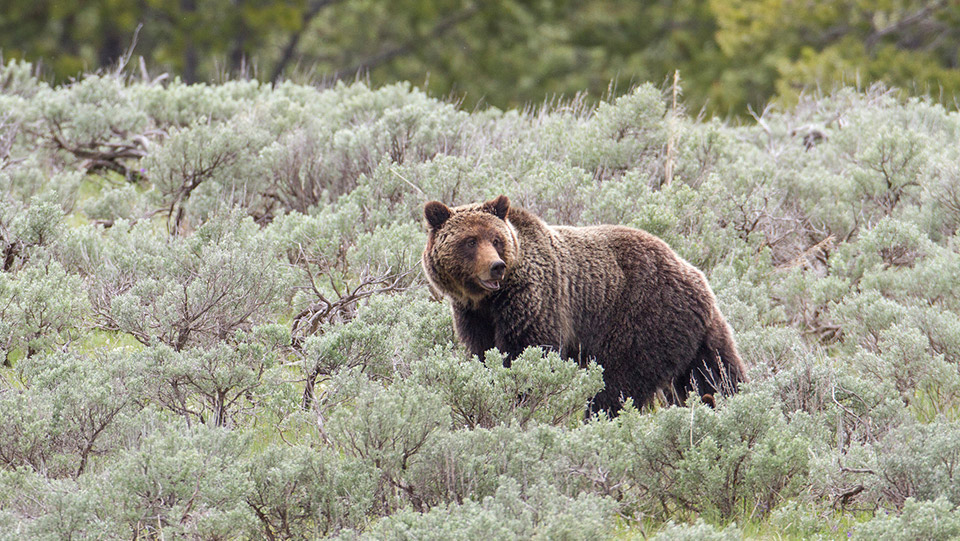
Yellowstone is home to both grizzly bears (above) and black bears. Safe traveling in bear country begins before you get on the trail. Learning about bears can help you avoid a confrontation.
NPS / Jim Peaco
August 31, 2017 - The Humane Society of the United States and The Fund for Animals filed a lawsuit against the U.S. Fish and Wildlife Service for its decision to prematurely eliminate Endangered Species Act protections for grizzly bears living in the Greater Yellowstone Ecosystem.
Because of the animals’ near brush with extinction, federal law has prohibited state wildlife managers from subjecting these bears to trophy hunting for decades. Now agencies in Wyoming, Montana and Idaho are signaling that they’ll issue grizzly bear trophy hunting permits, with Wyoming giving out the largest share of them.
“The Administration is turning over management to states agencies that have allowed politics to trump science when it comes to predator management,” said Wayne Pacelle, president and CEO of The HSUS. “De-listing is prescription for needless, dangerous levels of killing of one of America’s rarest carnivores.”
Tourists visit Yellowstone and Grand Teton National Parks by the tens of millions annually to see America’s Great Bear.
Pacelle added, “The number of people who want to watch grizzlies and keep them alive is vastly larger than the small universe of people who want to kill them for their heads. Maintaining federal protections is the right moral decision, and also the economic action.”
Facts:
• The lawsuit, filed in federal court for the District of Montana in Missoula, alleges that the U.S. Fish and Wildlife Service violated the Endangered Species Act and the Administrative Procedure Act by delisting grizzly bears without considering the best available science regarding ongoing threats to their survival. These threats include the continued decline of staple food sources (causing increased human-bear conflict as more bears venture beyond the Parks in search of food) and inadequate state-level protections.
• Trophy hunts are likely to result in the deaths of orphaned cubs.
• While grizzly bear hunting will not be permitted within Yellowstone and Grand Teton National Parks, the lack of a “buffer zone” means that bears like #399 who are easily identifiable and beloved by park visitors, will face the threat of trophy hunting immediately outside the Parks’ perimeter.
• Even with federal protection, Yellowstone’s grizzly bears faced jeopardy. Park managers have reported record numbers of bear deaths in recent years with 61 confirmed deaths in 2015 and 58 in 2016.
• The Northern Rocky states’ position on grizzly bear management remains discordant when measured against the aesthetic, scientific and cultural values of most Americans towards Yellowstone’s grizzly bears, a value that translate into over $1 billion in revenues by national park visitors to Grand Teton and Yellowstone National Parks.
• Despite 50 years of monitoring, not one bear has made a safe passage into the Yellowstone region from other populations in the northern U.S. because of human-caused mortalities to dispersing bears who bring much needed genetic diversity to bears in the Greater Yellowstone Ecosystem.
Source: The Humane Society of the United States








